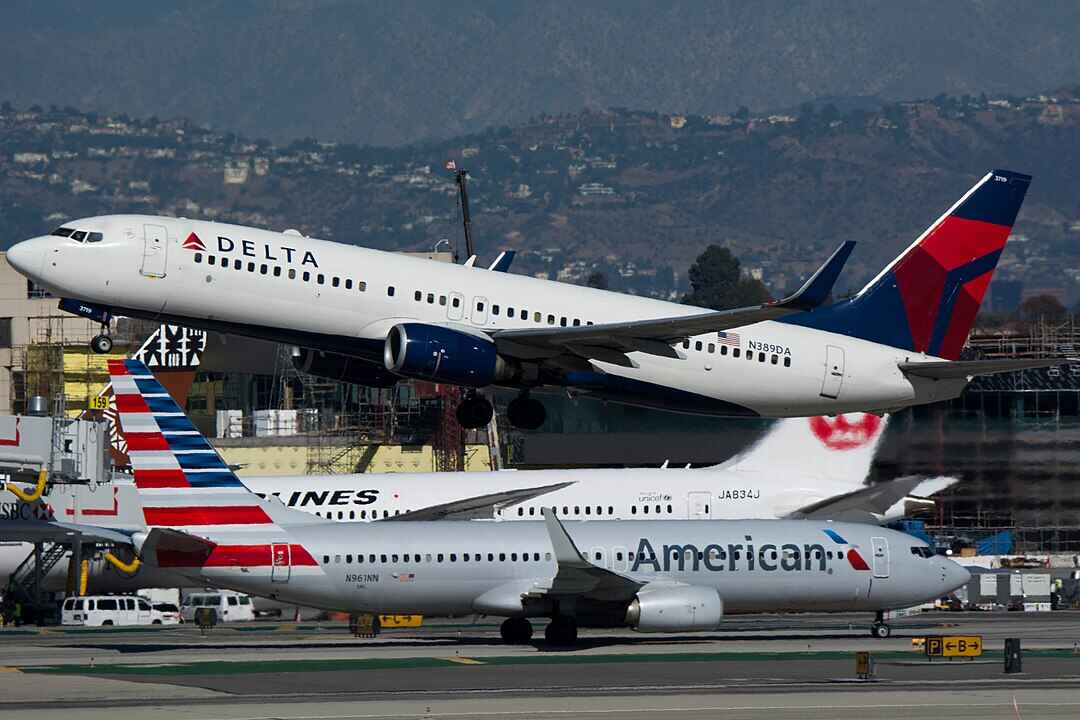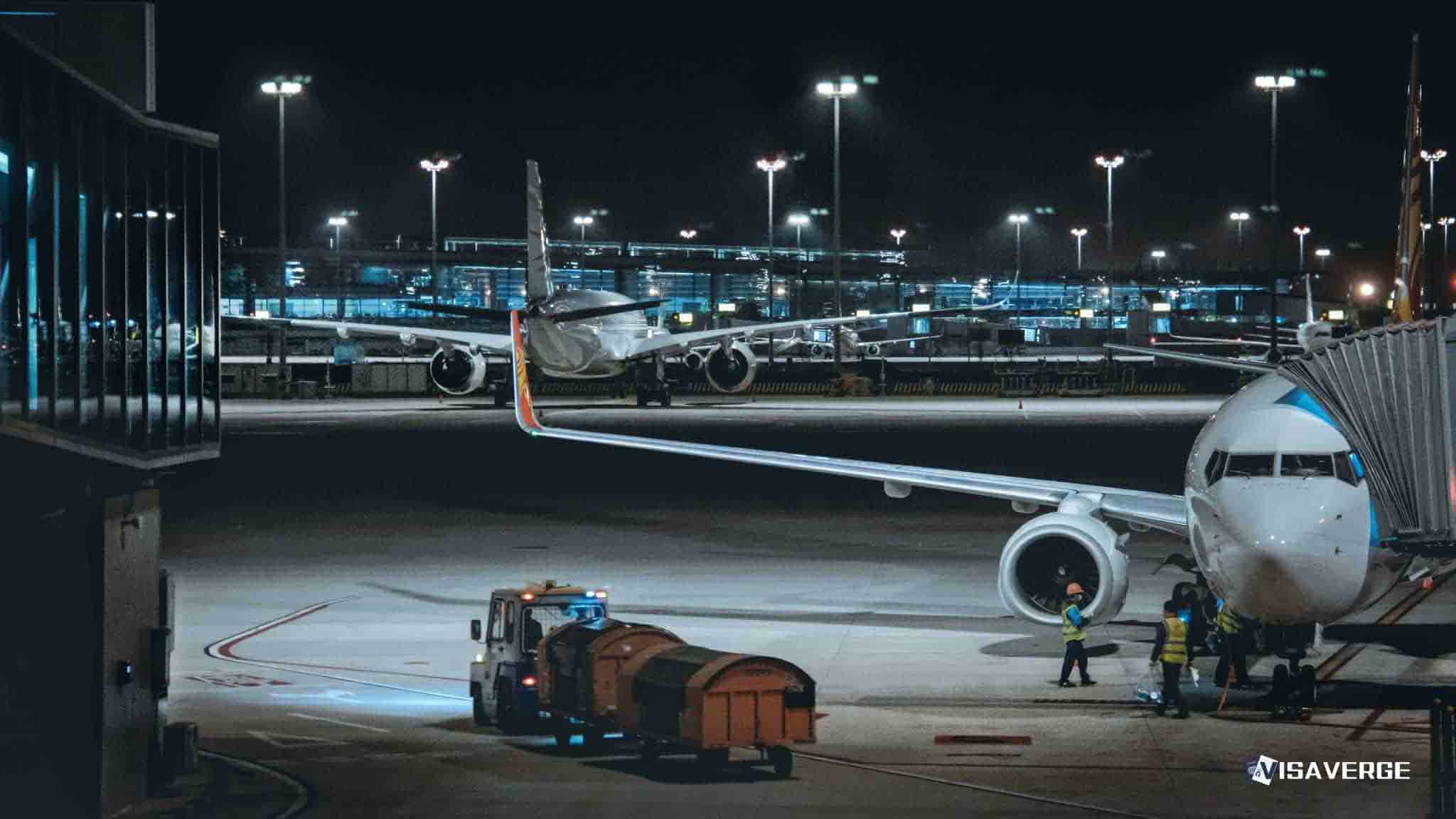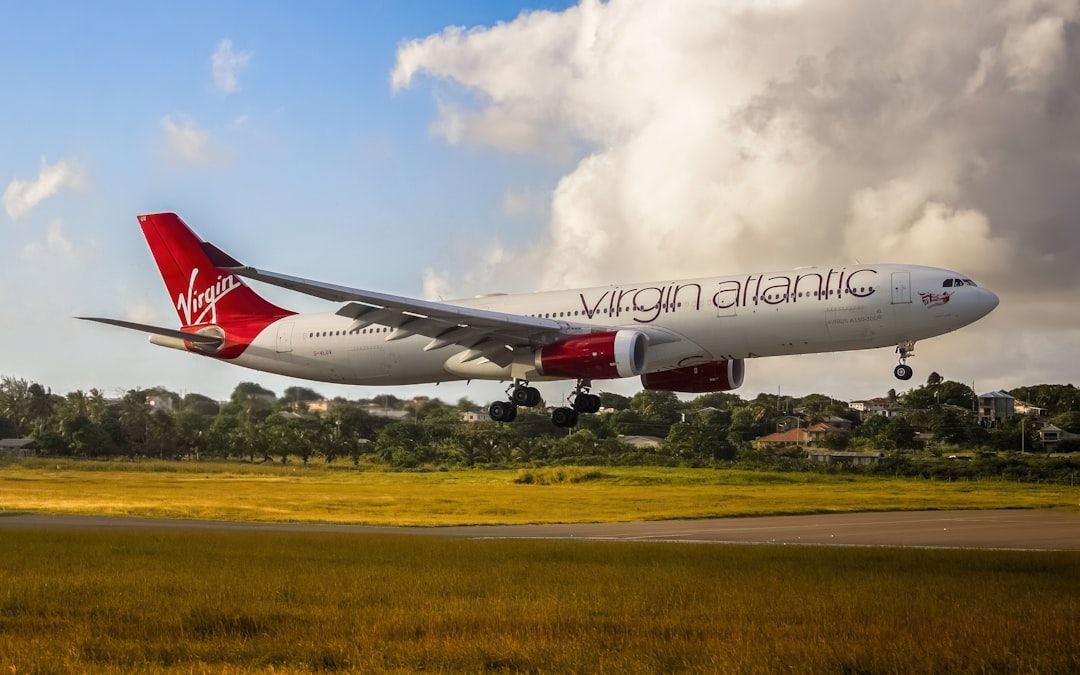Key Takeaways
• Over 5,000 U.S. flights delayed or canceled since July 2025, impacting major hubs like Newark and LAX.
• Newark limits flights to 34 per hour weekdays, 28 on weekends, through December 2025 to reduce congestion.
• FAA fights staffing shortages, weather, and upgrades, urging travelers to expect disruptions into late 2025.
Travelers across the United States 🇺🇸 are facing a wave of flight disruptions as major airlines, including American, Delta, JetBlue, Lufthansa, Emirates, Air Canada 🇨🇦, British Airways, Korean Air, and Cathay Pacific, struggle to keep schedules on track. Since early July 2025, more than 5,000 flights have been delayed or canceled, hitting key airports like Newark, Boston, Los Angeles, and Washington Dulles especially hard. The Federal Aviation Administration (FAA) and airlines are working to manage the crisis, but passengers should expect continued problems through at least the end of the year.
What’s Happening and Why?

The current crisis in U.S. air travel is the result of several problems coming together at once. Severe summer weather, ongoing construction and technology upgrades, and a shortage of air traffic controllers have all played a role. These issues have forced the FAA to limit the number of flights at some of the country’s busiest airports, including Newark Liberty International Airport (EWR), where strict flight caps are now in place.
As of June 16, 2025, Newark is only allowing 34 arrivals or departures per hour on weekdays, and just 28 per hour on weekends and holidays. These limits will stay in place through the end of 2025, with the possibility of further extensions if things don’t improve. According to analysis by VisaVerge.com, these changes are meant to reduce chronic delays and congestion, but they also mean fewer available flights and more crowded rebooking processes for travelers.
Scope and Impact of the Disruptions
The numbers show just how widespread the problem is:
- Over 5,000 flight disruptions (delays and cancellations) have been reported across the United States 🇺🇸 since July began.
- In the past week alone, more than 4,200 cancellations and interruptions have hit major hubs, including Charlotte, Boston, Philadelphia, Chicago, Los Angeles, New York, and Washington.
- Newark, Los Angeles International Airport (LAX), JFK, and Boston Logan are among the top airports for delays, with 28% to 31% of flights affected, based on 2025 data.
On July 13, 2025, LAX reported 250 delays in a single day, though the situation there has since improved to minor delays of 15 minutes or less. However, the FAA warns that conditions can change quickly, especially when bad weather or airspace congestion hits.
Key Causes: Weather, Upgrades, and Staffing Shortages
Several factors are driving the current wave of flight disruptions:
- Weather: Thunderstorms, low clouds, and changing summer weather patterns are causing widespread delays, especially in the Northeast and Midwest. Even airports not directly hit by storms can experience knock-on effects as planes and crews get stuck elsewhere.
- Infrastructure Upgrades: Newark is in the middle of a major technology overhaul, replacing 90 miles of old copper cables with new fiber optics. This upgrade is expected to be finished and tested by July 2025. A major runway rebuild at Newark was completed ahead of schedule in June, but the airport is still catching up.
- Staffing Shortages: There aren’t enough air traffic controllers, especially at key centers like Philadelphia TRACON, which manages Newark’s airspace. Some controllers have taken trauma leave, making the problem worse. The FAA is trying to hire and train more staff, but it takes time to get new controllers up to speed.
FAA and Airline Responses
The FAA has taken several steps to try to manage the crisis:
- Flight Caps: By limiting the number of flights at Newark and other busy airports, the FAA hopes to reduce delays and make the system more predictable.
- Structured Schedules: Airlines are being asked to stick to strict schedules and coordinate closely with air traffic control.
- Staffing and Backup: The FAA is working to boost staffing at critical control centers and add backup systems to handle emergencies.
Transportation Secretary Sean Duffy has said that upgrading infrastructure and fixing staffing shortages are top priorities. “We know travelers are frustrated, and we’re doing everything we can to get things back on track,” Duffy said in a recent statement.
Aviation analysts like Jason Rabinowitz have criticized the FAA’s earlier efforts as too slow, saying the agency is now “playing catch-up” with more aggressive measures.
How Airlines Are Coping
Major airlines, including American, Delta, JetBlue, and others, are working with the FAA to adjust schedules and keep passengers informed. However, they warn that flight disruptions are likely to continue through at least the end of 2025.
Airlines are:
- Adjusting Schedules: Reducing the number of flights, especially at airports with strict caps like Newark.
- Notifying Passengers: Most airlines, including Air Canada 🇨🇦, automatically enroll travelers in flight status notifications and recommend checking flight status often.
- Rebooking and Compensation: Airlines are offering rebooking options and, in some cases, compensation for delays and cancellations. Each airline has its own policies, so travelers should check official websites for details.
Practical Advice for Travelers
If you’re flying through major hubs like Newark, LAX, JFK, Boston, or Dulles, here’s what you need to know:
- Expect Delays and Cancellations: Especially during weekends and holidays, when flight caps are even lower.
- Monitor Flight Status: Use airline apps, official airport websites, and the FAA’s Air Traffic Status page for real-time updates.
- Consider Alternative Airports: If possible, look for flights from less crowded airports nearby.
- Book Flexible Tickets: Choose tickets that allow changes or cancellations without big fees.
- Arrive Early: Give yourself extra time at the airport, especially if you need to check bags or go through security.
- Travel Insurance: Consider buying insurance that covers trip delays and cancellations, especially if you’re flying through high-risk airports.
What to Do If Your Flight Is Disrupted
If your flight is delayed or canceled, here are some steps you can take:
- Check Your Airline’s Policy: Each airline has its own rules for rebooking and compensation. Visit the airline’s official website or contact customer service.
- Use Official Tools: Most airlines offer online tools or apps for rebooking. You can also check the FAA’s Air Traffic Status for updates.
- Ask About Compensation: In some cases, you may be entitled to meal vouchers, hotel stays, or refunds. Ask your airline what they offer.
- Stay Informed: Sign up for flight status notifications and follow @FAANews on Twitter for the latest alerts.
Background: How Did We Get Here?
The current crisis didn’t happen overnight. Years of underinvestment in air traffic control technology, combined with staffing cuts during the COVID-19 pandemic, left the system vulnerable. When travel demand surged after the pandemic, airports and airlines struggled to keep up.
The FAA’s recent actions—like extending flight caps and speeding up infrastructure upgrades—are the most aggressive steps taken so far to fix the system. But experts warn that it will take time to see real improvements.
Expert Perspectives and Community Impact
Aviation experts say that the combination of weather, construction, and staffing shortages will likely keep causing flight disruptions through at least the end of 2025. Airlines are urging travelers to be flexible and patient, while travel insurance companies recommend coverage for delays and cancellations.
For immigrants, international students, and families traveling for important events, these disruptions can have serious consequences. Missed connections, visa appointments, and family reunions may be affected. Employers relying on foreign workers or business travelers may also face challenges as flight schedules remain unpredictable.
What’s Next?
Looking ahead, the FAA plans to keep Newark’s flight caps in place through December 31, 2025. If staffing and technology problems continue, these limits could be extended even further. The hope is that ongoing upgrades—like the new fiber optic system at Newark—will start to improve reliability by late 2025. However, full recovery may not come until 2026 or later, depending on how quickly new air traffic controllers can be trained and hired.
Travelers should expect continued ups and downs in flight schedules, especially during busy travel periods and when bad weather hits. Airlines and the FAA are working to make things better, but the system remains under strain.
Resources for Travelers
For the latest information on flight disruptions, travelers should use these official resources:
- FAA Air Traffic Status: fly.faa.gov
- FAA Daily Air Traffic Report: faa.gov/newsroom/faa-daily-air-traffic-report
- Airline Customer Service: Check your airline’s official website for rebooking and compensation policies.
- Social Media: Follow @FAANews on Twitter for real-time updates.
Tips for Managing Flight Disruptions
- Stay Flexible: Be ready to change your plans if needed.
- Keep Documents Handy: Have your passport, visa, and any important paperwork with you at all times.
- Plan for Delays: Bring snacks, water, and entertainment for long waits at the airport.
- Know Your Rights: If you’re flying internationally, check the rules for compensation and assistance in both your home country and the United States 🇺🇸.
Implications for Immigrants and International Travelers
Flight disruptions can be especially hard for immigrants and international travelers. Missed flights can mean missed visa appointments, job interviews, or family reunions. If you’re traveling for immigration purposes, make sure to:
- Allow Extra Time: Schedule flights with plenty of time before important appointments.
- Contact Authorities: If you miss a visa or immigration appointment due to a flight disruption, contact the relevant office as soon as possible to explain and reschedule.
- Keep Proof: Save all documents showing your flight was delayed or canceled. This can help if you need to explain your situation to immigration officials.
What Are Airlines Doing for Affected Passengers?
Airlines are trying to help passengers affected by flight disruptions. Some offer:
- Automatic Rebooking: If your flight is canceled, you may be automatically rebooked on the next available flight.
- Compensation: Depending on the airline and the reason for the delay, you may get meal vouchers, hotel stays, or refunds.
- Flexible Policies: Many airlines are waiving change fees and offering flexible rebooking options.
Check your airline’s official website for the latest policies and procedures.
How the FAA Is Responding
The FAA is taking several steps to address the crisis:
- Hiring More Controllers: The agency is working to recruit and train new air traffic controllers, but this process takes time.
- Upgrading Technology: Major upgrades, like the new fiber optic system at Newark, are underway to make the system more reliable.
- Coordinating with Airlines: The FAA is working closely with airlines to manage flight schedules and reduce congestion.
What Can Travelers Do Right Now?
If you have a flight coming up, here’s what you can do:
- Check Your Flight Status Often: Use airline apps and the FAA’s Air Traffic Status page.
- Sign Up for Alerts: Most airlines offer free text or email alerts for flight status changes.
- Have a Backup Plan: Know your options if your flight is delayed or canceled.
- Stay Calm and Polite: Airline staff are doing their best in a tough situation. Being patient and polite can help you get better service.
Looking to the Future
While the current wave of flight disruptions is frustrating, there are signs that things may improve in the coming months. The FAA’s infrastructure upgrades and new hiring efforts should help reduce delays over time. However, travelers should be prepared for continued problems, especially at busy airports like Newark, through at least the end of 2025.
As reported by VisaVerge.com, the best advice for now is to stay informed, be flexible, and plan ahead. By using official resources and keeping a close eye on your flight status, you can reduce the impact of disruptions and make your travel experience as smooth as possible.
For More Information
For the latest updates on flight disruptions, visit the FAA’s Air Traffic Status page. This official government resource provides real-time information on delays, cancellations, and airport conditions across the United States 🇺🇸.
If you need help with rebooking, compensation, or understanding your rights as a traveler, check your airline’s official website or contact their customer service team directly. For immigration-related travel, consult the U.S. Department of State or U.S. Citizenship and Immigration Services for guidance on missed appointments or rescheduling due to flight disruptions.
By staying informed and prepared, travelers can better handle the ongoing challenges in U.S. air travel and minimize the impact of flight disruptions on their plans.
Learn Today
Flight Disruptions → Delays or cancellations of scheduled flights causing travel inconvenience and scheduling issues for passengers.
Federal Aviation Administration (FAA) → U.S. government agency that regulates and oversees all aspects of civil aviation.
Flight Caps → Limits set on the number of flights allowed per hour at busy airports to reduce congestion.
Air Traffic Controllers → Professionals who coordinate aircraft movements to ensure safe and efficient airspace use.
Rebooking → The process of scheduling a new flight for passengers affected by delays or cancellations.
This Article in a Nutshell
U.S. air travel faces major disruptions due to weather, staffing shortages, and upgrades. Newark caps flights, causing delays nationwide. Airlines cooperate with FAA on schedule adjustments. Travelers must monitor status closely, expect continued issues through 2025, and prepare with flexible plans and flight alerts for smoother travel experiences.
— By VisaVerge.com







